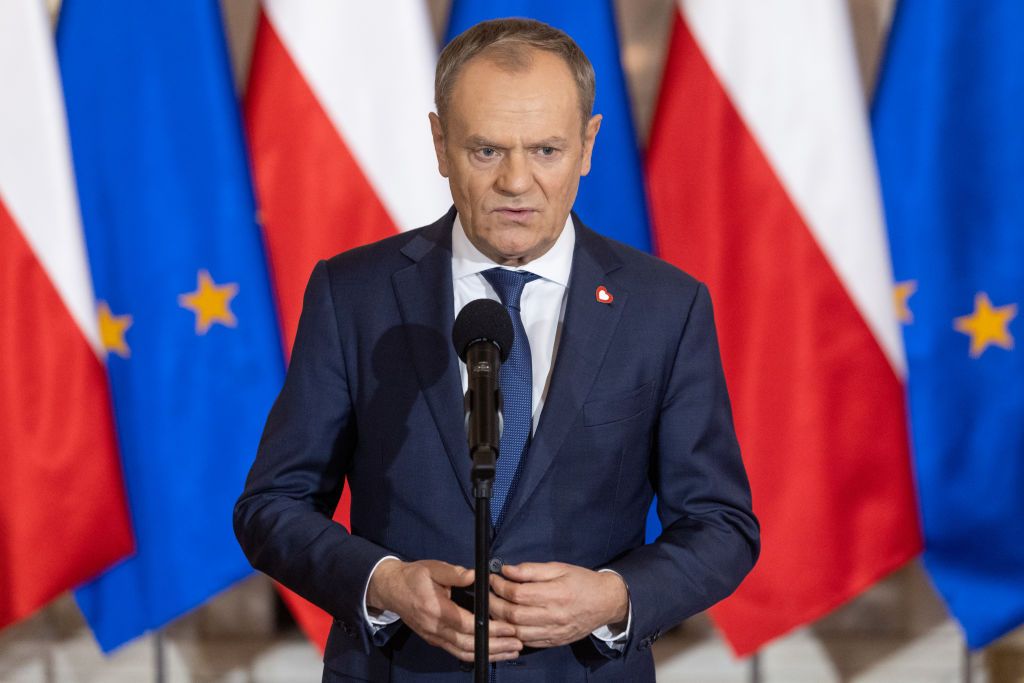Kyiv denies talks on temporary closure of Ukraine-Poland border

Taras Kachka, Ukraine's deputy economy minister who takes part in talks with Poland on the border blockade and trade disputes, said on Feb. 28 that the border's closure was not mentioned during the talks.
Kachka was reacting to an earlier statement by Polish Prime Minister Donald Tusk, as cited by Polish media, that Warsaw leads talks with Kyiv on the possibility of temporarily closing the border for trade of goods.
"We are also talking to the Ukrainian side about temporarily closing the border and exchanging goods. I will also talk about this tomorrow with Polish farmers," the Polish prime minister reportedly said.
Tusk commented that while he is ready to make hard decisions regarding the border, a long-term solution must be found. He also said that all steps will be taken in consultations with Ukraine to avoid unnecessary tensions.
"During all four hours of negotiations, the option of closing the border was not mentioned," Kachka, who also serves as Ukraine's trade representative, wrote on Facebook.
"As Polish Prime Minister Donald Tusk said quite clearly – it would be a very painful decision for our economies."
Ukraine's Infrastructure Minister Oleksandr Kubrakov also denied any talks on temporarily shutting down the border.
"No one from the Ukrainian side is conducting negotiations on closing the borders with Poland. For us, a stably functioning border is a matter of survival in a war with the Russian aggressor," Kubrakov said in a statement shared on the Infrastructure Ministry's Telegram channel.

According to Kachka, the negotiating teams were "able to find a common language and are working on a constructive solution to unblock the border while taking into account the interests of Polish and Ukrainian farmers. It is not easy, but it is possible."
The Ukrainian official said that the negotiations were led on the Polish side by Agriculture Minister Czeslaw Siekierski and Economic Development and Technology Minister Krzysztof Hetman.
The statements come amid escalating tensions between the two countries. Polish farmers have been holding protests across Poland and at the border with Ukraine in opposition to Ukrainian agricultural imports and the EU's Green Deal.
The Polish government has repeatedly said it understands the concerns of its agricultural producers and pointed out the supposed negative impacts of the EU's decision to continue a free trade regime with Ukraine, originally instituted in 2022.
According to Warsaw, the influx of cheaper Ukrainian products threatens the domestic production and livelihoods of Polish farmers, which Kyiv denies. Poland has already instituted a ban on several Ukrainian products, such as grain.
Poland warned that if the issue is not resolved, the ban may be expanded to other products.
Ukrainian and Polish officials lead talks to find a solution to the disputes, namely, by establishing quotas on Ukrainian agricultural imports.











